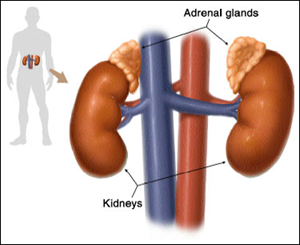
Cushing syndrome occurs when the body’s tissues are exposed to too much of the hormone cortisol or a medication similar to cortisol for too long.1 The syndrome is named after Harvey Cushing, the brain surgeon who first described the condition.2
Cortisol is an essential hormone for life. The body’s two adrenal glands produce the hormone cortisol daily for our routine activities and a higher amount of cortisol in response to stress or when the cortisol levels in the blood are lower than they should be.
In the right amount, cortisol helps the body with several vital tasks:
- Maintaining blood pressure and heart function
- Controlling the immune system
- Turning food into energy
- Raising blood sugar levels as needed
- Controlling bone formation
If the body makes too much cortisol or gets too much from external sources, like medications, Cushing syndrome may occur. Whether you develop Cushing syndrome depends on factors such as how much medication you take and for how long or how large a tumor grows before it is detected and treated.

 BACK TO TOP
BACK TO TOP